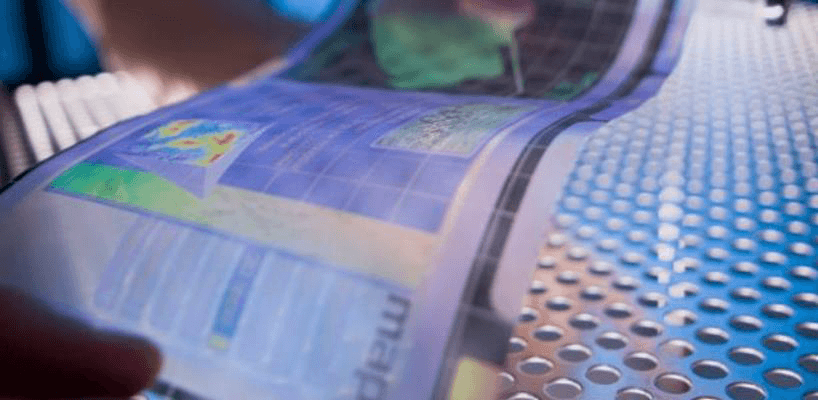The Defense Department, private industry, academia and others are partnering to launch a national manufacturing innovation institute in Silicon Valley to develop a new generation of electronics for devices ranging from weapon systems to artificial limbs.
Defense Secretary Ash Carter announced Aug. 28 that the institute will focus on creating “flexible hybrid electronics” that are bendable, stretchable and lightweight. Speaking at Moffett Federal Airfield in California, Carter said the technology has “enormous potential” for the military and will allow the defense industry “to shape electronics to things, after decades of having to do it the other way around.”
Specific defense applications include structural integrity sensors that are placed on the surfaces of aircraft and ships to provide real-time damage assessments after an engagement; smart uniforms that alert soldiers to the first signs of injury or exhaustion; small, unattended sensors that give soldiers greater situational awareness; and smart prosthetics that have the full flexibility of human skin, DoD said. Non-defense sectors, including automotive, communications, consumer electronics and transportation, are also expected to benefit from the institute’s work.
Pentagon Commits to 5 Years Studying Flexible Technology
FlexTech Alliance, a San Jose, Calif.-based research consortium of more than 160 companies, universities, state and local government organizations, laboratories and nonprofits, will manage the electronics organization. The Pentagon will contribute $75 million over five years to the institute, which will also receive more than $96 million from non-federal partners. According to a White House fact sheet, companies involved in the consortium include Boeing, General Dynamics, General Electric, Harris, Lockheed Martin, Raytheon, SAIC and United Technologies.
“The institute will distribute R&D funds via competitively-bid project calls,” FlexTech Alliance said. “Industry-generated technology roadmaps will drive project calls, timelines and investments.”
The institute will be similar to a series of other manufacturing innovation institutes that the Obama administration has set up to promote advances in such areas as digital manufacturing, lightweight technology, photonics and three-dimensional printing
Carter, who took office in February, has made closer ties with California’s high-tech community a priority. In April, he announced the creation of the Defense Innovation Unit-X (DIUX) in Silicon Valley to serve as a local interface node for his department.




